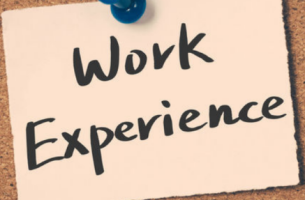
Matthew Owen
Sep 26, 2022
Job Interview Questions: What Candidates Want To Know And How Best To Answer Them
In our recent webinar ‘How To Win The War For Talent’, our expert panel spoke about a new way of interviewing – one where applicants are asking more questions. This is just another example of the changes due to being in a candidate-driven climate. Here, we explain how to prepare for it.
Turning tables
Previously, interviews were an opportunity for a hiring manager to get to know a candidate, and the qualities they could bring to the company. In response to job interview questions, most people would walk the walk or talk the talk to convey why they were the best person for the job.
Now, candidates are much more confident when it comes to asking their own job interview questions. This is because, as well as stating what they can bring to the role, they want to know what you can offer them. Recently, Gemma Paterson, Head of People at Urb-it and one of our webinar panel members, conducted an interview where 30 of the 45 minutes were dedicated to just that.
And this change isn’t necessarily a bad thing – quite the opposite, in fact. Ensuring a two-way hiring process allows candidates to determine whether the position and company are right for them. So, rather than accepting the role and coming to this realisation later down the line, both parties have transparency right from the off.
Ready for your turn in the hot seat? Keep reading for our top tips on fielding candidate-led job interview questions…
Tip 1: Know what candidates want
This is the first hurdle, and it’s where most employers stumble. Today’s candidates aren’t just looking for the next level-up on their CV, they want to feel trusted and valued – think flexibility, regular feedback, and benefits that aren’t just ‘perks’. Our salary guide found that some of the most important factors to consider are the nature of the role itself, and whether or not it gives employees a sense of purpose – so expect questions like ‘How has this role evolved over time?’ or ‘How do you support your staff’s learning and development?’.
Tip 2: Be sensitive to the times
One way of instilling confidence in candidates is by demonstrating that you have a good knowledge of the current climate. Back in 2020/2021, most job interview questions would have been around hybrid/flexible working. As this is now widely accepted as the norm, there’ll be fewer questions in this vein. Yet candidates may be curious about how the company meets employee needs around the cost-of-living crisis and potential recession. For instance, some employers are offering discounts on food and fuel, plus monthly bonuses to help staff cope with rising energy costs.
Tip 3: Sell yourself!
Competition is fierce, and candidates have their pick of the market, so they’re going to be interested in the inner workings of your business, and how its wheels and cogs work together to form the big machine. This is your chance to make your company stand out; be prepared to talk about your EVP. What’s great about your culture? What do you do differently? How do you set people up for success? These questions shouldn’t be difficult to answer, but make sure you have this information to hand so you can really sell yourself.
Ready to embrace the future of interviewing?
By adopting a fresh approach to hiring that gives candidates ample opportunity to ask job interview questions, you’ll demonstrate that you aren’t just looking for a number to fill a vacancy, but a person who adds value, and will be valued in equal measure.
To stay one step ahead of your competitors, read our handy guide: 7 Ways To Win The War For Talent. In it, you’ll find advice on everything from speeding up your processes to embodying your company values.


